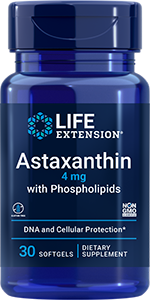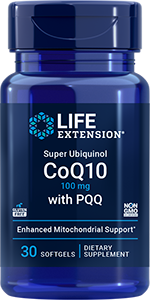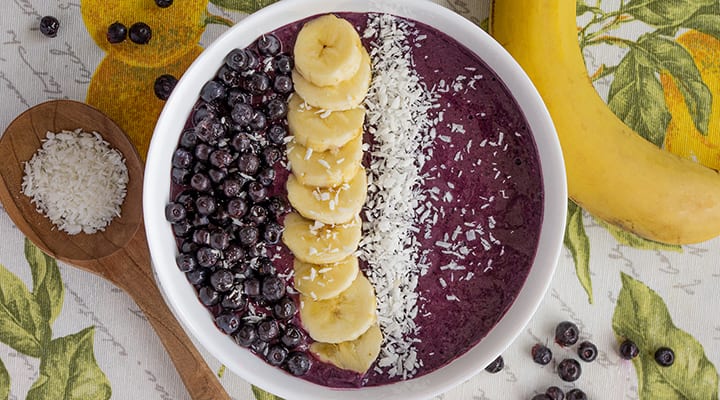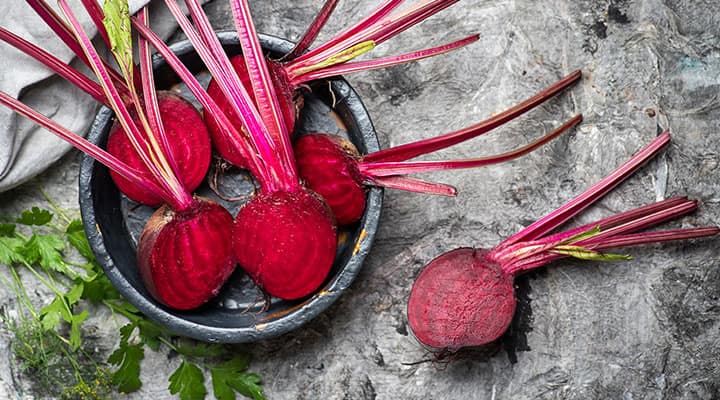
Astaxanthin vs. CoQ10: Which Supplement Is Right for You?
Published: January 2024
Ask any pro supplement user about their healthy aging arsenal and they will likely tell you that they're taking CoQ10 or astaxanthin…or both. Both dietary supplements are well-known fighters of oxidative stress, but there's a lot more to their benefits than just their antioxidant activity. Do you wonder how do they differ?
While both CoQ10 and astaxanthin are antioxidant supplements, comparing them is a bit like apples and oranges because they have different methods of combating age-related decline. here's what you need to know about these nutrients, where they come from and what they do in the body.
What is CoQ10?
Coenzyme Q10, or CoQ10, is not a vitamin like many people might think; it's a fat-soluble nutrient that our bodies produce naturally. It plays a critical role in our body by ensuring the creation of energy from the mitochondria, which is an especially important process for the health of multiple organs such as the liver, kidneys, brain and especially your heart.
CoQ10 declines with age; therefore, a coenzyme Q10 blood test should be done periodically to ensure you've got sufficient levels. If yours are dipping, the good news is that you can supplement.
Quick chemistry lesson! CoQ10 has two forms: ubiquinone and ubiquinol. The ubiquinone form is in an oxidized state, which means it's an electron acceptor. The ubiquinol form is in a reduced state, which means it's an electron donor. Ubiquinol has demonstrated a better ability at fighting free radicals.
What is astaxanthin?
Astaxanthin is also not a vitamin. It instead belongs to a class of nutrients called carotenoids, which are specific types of antioxidant nutrients that are produced by several forms of life and contribute to the characteristic colors of those organisms.
Astaxanthin is produced by many different living organisms, but not by humans. However, one species of microalgae called Haematococcus pluvialis produces it particularly efficiently, and animals that eat high concentrations of these algae such as shellfish and red-colored seafood such as crab, lobster, krill, salmon and shrimp take up the astaxanthin which provides their red colors.
Fun fact: did you know that flamingoes are red because their diets are high in a lot of astaxanthin? Now, if you're trying to turn your skin red by consuming more astaxanthin, I hate to be the bearer of bad news, but you probably couldn't consume enough astaxanthin to make a noticeable change in your skin color!
But fortunately, consuming more astaxanthin may provide a range of health benefits (including support for energy production like CoQ10).
What do CoQ10 and astaxanthin have in common? 5 health benefits
Both nutrients have been shown clinically to support healthy aging by providing skin, brain and heart benefits…but they do this in different ways. Let's explore the clinical research on both.
1. Cardiovascular health
In a randomized-controlled trial, 101 people were administered 120 mg of CoQ10 or a placebo for 24 weeks. The results showed that supplementation helped support healthy levels of blood pressure and lipid markers such as triglycerides and LDL. Total antioxidant capacity also significantly improved.
Meanwhile, in a meta-analysis of clinical studies, astaxanthin was shown to support healthy levels of HDL (good cholesterol) and C-reactive protein.
2. Brain health
Astaxanthin and CoQ10 have been studied for their effects on brain health. One clinical study found that astaxanthin supplementation significantly boosted cognitive function in middle-aged and older adults. And observational research has found that CoQ10 levels are positively associated with cognitive function and executive function in older adults.
3. Exercise performance
Trying to get the most out of your workouts? CoQ10 and astaxanthin may belong in your sports nutrition supplement lineup. One study reported a positive relationship between exercise capacity and the concentration of CoQ10 in the thigh muscles of physically active males. In a study on sedentary men, CoQ10 supplementation was associated with increased performance-enhancing effects during repeated bouts of specific exercises. Additionally, one study on firefighters found that ubiquinol supplementation supported a healthy inflammatory response to strenuous exercise compared to placebo.
What about astaxanthin? If you're a cyclist, this may be the supplement for you! One small study in male cyclists indicated that astaxanthin may improve cycling time compared to placebo.
4. Antioxidant activity
Antioxidants, as the name suggests, help your body fight back against oxidative stress, which happens to the body simply by existing and growing older. Both CoQ10 and astaxanthin have shown supportive effects on antioxidant blood biomarkers in clinical research.
They both are well-known antioxidants, but they achieve this status in different ways. CoQ10 is produced naturally by the body and serves a critical role in mitochondrial function, protecting and powering up your cells. Astaxanthin may also play a role in mitochondrial function, but it must be consumed through diet or supplementation since humans don't produce it on their own.
Looking for real antioxidant star power? One of the most powerful natural antioxidants is glutathione. Our bodies produce glutathione from the amino acid L-cysteine to protect our cells from oxidative stress and to help aid in the detoxification response. A clinical study published in 2022 found that astaxanthin supplementation was associated with increased glutathione concentrations in active young men. And if you're looking to help support your liver's natural detoxification process even further, make sure you're also getting enough vitamin C!
5. Healthy inflammatory response
Here's something else these two popular nutrients have in common: Large meta-analyses on clinical studies have shown that both CoQ10 and astaxanthin can support healthy levels of a systemic marker of inflammation called C-reactive protein.
Astaxanthin & Eye Health
When speaking of the health benefits of astaxanthin, we'd be remiss not to call out astaxanthin's well-studied effects on eye health. This is because the main components of your macular pigment are two carotenoids, lutein and zeaxanthin, which help protect the eyes from the effects of excess blue and UV light.
As the name "carot-enoids" suggests, you can get these nutrients from brightly pigmented plants like carrots, as well as in supplement form. Adding astaxanthin to this lineup offers impressive ocular benefits.
CoQ10, incidentally, has not received much research attention for the eyes.
Is astaxanthin stronger than CoQ10?
If astaxanthin and CoQ10 were in a boxing match and their boxing skills were determined by the ability to scavenge free radicals, then astaxanthin would probably win! But hold your bets; this doesn't necessarily mean astaxanthin is better than CoQ10. A clinical study comparing them head-to-head within the human body has yet to be performed.
Let me explain. Research has indicated that astaxanthin may be a significantly powerful antioxidant. In fact, according to a review, it is much better at trapping energy from a singlet oxygen than not only CoQ10, but also other antioxidants such as vitamin C, vitamin E and beta-carotene. However, this type of testing was performed in vitro or outside of the body, which doesn't necessarily mean we can translate these results to humans.
Whether or not one is stronger than the other, however, isn't the question to ask. Both compounds have their own importance, and many could benefit from taking both.
Can I take CoQ10 and astaxanthin together?
Yes, there is no reason why these two healthy aging supplements can't be taken together! In fact, pairing them may provide differing benefits to better assist your overall health. However, clinical research evaluating the combination of the two together is limited.
When to take antioxidants
Antioxidants can be taken at any time of the day, but every supplement will differ, which is why you should follow the directions on the label. Some will require you to take them with food, so plan accordingly!
Pro tip: For personalized recommendations, take a longevity health needs quiz.
References
- Barcelos IP, Haas RH. "CoQ10 and Aging." Biology (Basel). May 2019. https://www.ncbi.nlm.nih.gov/pmc/articles/PMC6627360/
- Bjørklund G, et al. "The Role of Astaxanthin as a Nutraceutical in Health and Age-Related Conditions." Molecules. October 2022. https://www.ncbi.nlm.nih.gov/pmc/articles/PMC9655540/#B53-molecules-27-07167
- Brown DR, et al. "The effect of astaxanthin supplementation on performance and fat oxidation during a 40 km cycling time trial." J Sci Med Sport. January 2021. https://pubmed.ncbi.nlm.nih.gov/32660833/
- Diaz-Castro J, et al. "Beneficial Effect of Ubiquinol on Hematological and Inflammatory Signaling during Exercise." Nutrients. February 2020. https://pubmed.ncbi.nlm.nih.gov/32041223/
- Fan L, et al. "Effects of coenzyme Q10 supplementation on inflammatory markers: A systematic review and meta-analysis of randomized controlled trials." Pharmacol Res. May 2017. https://pubmed.ncbi.nlm.nih.gov/28179205/
- Fernández-Portero C, et al. "Coenzyme Q10 Levels Associated With Cognitive Functioning and Executive Function in Older Adults." J Gerontol A Biol Sci Med Sci. January 2023.
https://pubmed.ncbi.nlm.nih.gov/35908233/ - Gökbel H, et al. "The effects of coenzyme Q10 supplementation on performance during repeated bouts of supramaximal exercise in sedentary men." J Strength Cond Res. January 2010. https://pubmed.ncbi.nlm.nih.gov/19644406/
- Hayashi M, et al. "Effect of astaxanthin-rich extract derived from Paracoccus carotinifaciens on cognitive function in middle-aged and older individuals." J Clin Biochem Nutr. March 2018. https://pubmed.ncbi.nlm.nih.gov/29610561/
- Karlsson J, et al. "Muscle ubiquinone in healthy physically active males." Mol Cell Biochem. March 1996. https://link.springer.com/article/10.1007/BF00426340#citeas
- McAllister MJ, et al. "Astaxanthin Supplementation Increases Glutathione Concentrations but Does Not Impact Fat Oxidation During Exercise in Active Young Men." Int J Sport Nutr Exerc Metab. January 2022. https://pubmed.ncbi.nlm.nih.gov/34611051/
- Perrett DI, et al. "Skin Color Cues to Human Health: Carotenoids, Aerobic Fitness, and Body Fat." Front Psychol. March 2020. https://www.ncbi.nlm.nih.gov/pmc/articles/PMC7078114/
- Sztretye M, et al. "Astaxanthin: A Potential Mitochondrial-Targeted Antioxidant Treatment in Diseases and with Aging." Oxid Med Cell Longev. November 2019. https://www.ncbi.nlm.nih.gov/pmc/articles/PMC6878783/
- Xia W, et al. "The effects of astaxanthin supplementation on obesity, blood pressure, CRP, glycemic biomarkers, and lipid profile: A meta-analysis of randomized controlled trials." Pharmacol Res. November 2020. https://pubmed.ncbi.nlm.nih.gov/32755613/
- Yoshida K, et al. "Effects of Astaxanthin, Lutein, and Zeaxanthin on Eye-Hand Coordination and Smooth-Pursuit Eye Movement after Visual Display Terminal Operation in Healthy Subjects: A Randomized, Double-Blind Placebo-Controlled Intergroup Trial." Nutrients. March 2023. https://pubmed.ncbi.nlm.nih.gov/36986186/
- Zhang P, et al. "Treatment of coenzyme Q10 for 24 weeks improves lipid and glycemic profile in dyslipidemic individuals." J Clin Lipidol. March 2018. https://pubmed.ncbi.nlm.nih.gov/29454678/










